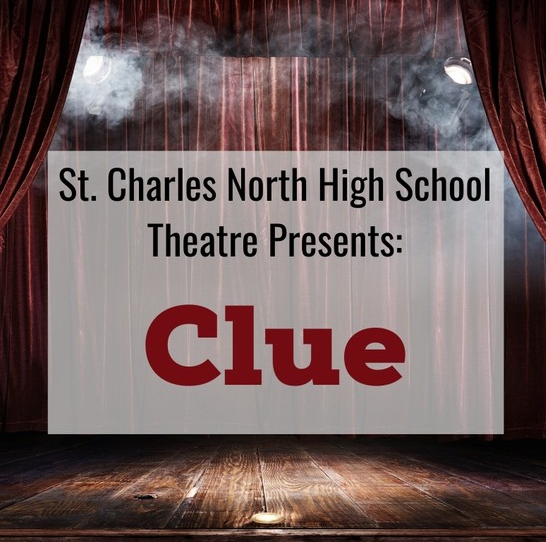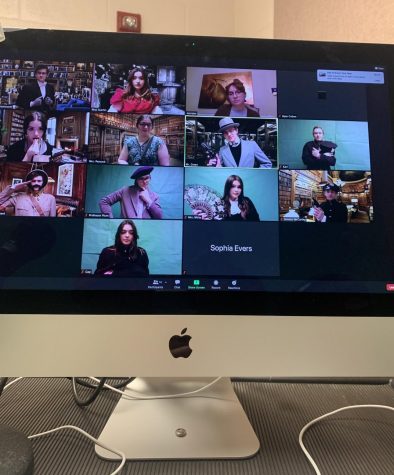Winter Play: “Clue” Captures Audience Through a Screen

Clue will be performed live with actors in separate rooms and interacting with one another through their screens.
January 28, 2021
After shifting to an online format, the Drama Club has had to find ways to adapt the magic of theatre onto a computer screen. The winter play, Clue: A Virtual Production, has certainly been no exception.
There will be shows at 7:30 on Thursday, Friday and Saturday. The play will be around 95 minutes long. Tickets are $8 including service fee.
“Almost everyday after school we just join a Google Meet and just rehearse,” said Reed Hickerson, senior. Rehearsals were mostly online with the last few rehearsals being in person.
Auditions were entirely online, but the performance itself will be in the school so that tech and other issues can be regulated by the crew.
“We’re going to be in practice rooms alone, and we’ll be able to have our masks off,” said Karissa Rivera, senior. They will each have their own computer to film and be part of a live zoom meeting.
“That’s been a challenge, especially if you have different Wi-Fi strengths,” said Ryan Colton, director. This may cause challenges in syncing reactions or responding on cue.
“We have a green screen,” said Aubrey Risch, freshman. “We are in charge of changing our backgrounds.” This means actors have more on their plate to deal with.

“They’re acting more like techies and actors at the same time,” said Colton. This also includes turning cameras on and off.
“I think that’s something I’m a little more nervous about,” said Rivera. Multitasking during the show can have an impact on stress levels, and as a result, can make performances more difficult.
Costumes and props will remain the same. However, there will be multiple copies of a prop in various rooms to maintain continuity and to appear as if they are exchanging the prop in the same room.
Another big change in the acting process is the reduction of blocking. Blocking describes physical movements or positions of the actors on stage, but being confined in a room, they have been minimized.
“It’s a little bit easier because we’ve been focused more on our lines,” said Risch. However, line memorization techniques vary from actor to actor.
“When you’re walking around, certain actions make you remember different lines,” said Hickerson.
To compensate for the lack of blocking, a narrator has been added in this script adapted for an online format. Having a narrator will explain physical actions actors could otherwise not portray visually.
Making the play more engaging has been one of the biggest challenges in the transition online and played a big role in why the play Clue was chosen.
“I just wanted to choose something that was fun, engaging, energetic, something fun for the kids, and something that the audience would know,” said Colton.
Actors have also had to focus more on facial expressions, which can be more of a challenge to acting skills.
“Our faces are on camera the entire time…they’re seeing every single thing we’re doing,” said Risch. This means actors need to be more conscious of fidgeting, sneezing or distractions. Because of the Zoom format, actors can see themselves on the screen.
However, Colton acknowledged that this format adds another layer of challenge for the actors.
“When you’re performing as an actor, you really shouldn’t see the choices that you’re making because you may not like the way you perform,” said Colton. But, he does go on to say that, because this play is a comedy, there is room for hyperbole or overdone actions.
The play has also provided a great place for more student involvement and interaction, which has been lacking in school due to the online format.
“I started to see that rehearsals were almost taking over for the social interactions they normally get in school,” said Colton. To foster a sense of community, a chunk of time at the beginning of every rehearsal was dedicated to just chatting with each other.
“It’s really nice to just be in a situation where we can be with people we know,” said Risch, “because we’re missing so much of the social aspect of theatre.”
Despite the difficulties of transitioning online, everyone in the cast and crew is still thankful for the chance to have the play.
“We are extremely grateful that we’re allowed to do something for our community and our students,” said Colton.


